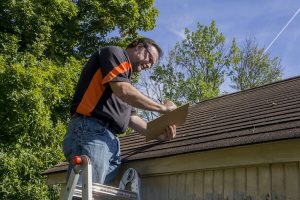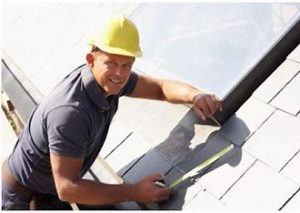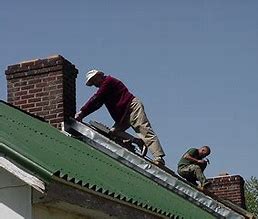As a roofer, knowing how roof insurance claims operate will help grow your roofing business. By understanding the ins and outs of such claims, you can guarantee a smooth relationship with insurers, serve your clients effectively, minimize delays, and get your invoice paid promptly.
While insurance claims can be tricky to tackle for roofing contractors, knowing how these claims work doesn’t have to be an uphill assignment. This post will explain the step-by-step process of roofing insurance claims to assist you in achieving the best results for your customers and roofing company.

How Does Roofing Insurance work?
Generally, the process of a roof insurance claim can be classified into the following steps:
- Insurance Adjuster Inspection
After the property owner/manager reports the wind or hail damage to their insurers, the insurance company will send their experienced adjuster to assess the damage on their own. The adjuster will inspect the roof, noting the damaged areas that your roofing company had pointed out in their initial inspection.
One member of your team must be present and accompany the adjuster as he performs the examination, responding to any queries that the adjuster may have and ensure no damage is left out. After the adjuster finalizes their inspection report, outlining their assessment of the damage, which will be sent to the insurance company.

- Reviewing the Claim
After the adjuster inspects the damaged roof, the insurance company will review the claim to determine the amount of money paid to the property owner for roof repairs or replacement. This process can take a lot of time, explaining why most insurance roofing restoration projects often get delayed.
As the insurance claim is under review, the insurer may request additional information about the damage from your roofing company or ask specific questions about the details you provided. You should respond promptly to such requests and be ready to back up your information with solid evidence.
- Finalizing the Claim
Once the roof insurance claim is finally reviewed and approved, the insurance company calculates the total damage value. At this stage, they will send a check to the property owner. The check will cover the cost of either repairing or replacing the roof to its initial condition.
When a property owner receives the check, the insurance company ceases to be part and parcel of the process. Now the ball is left between you and the homeowner to agree on the scope of work and write the contract details for roof repairs or replacement. In most cases, the agreement will cover damages mentioned in the final assessment; but some homeowners may want to conduct repairs above what is indicated in the insurance check.
Making Most out of Your Roofing Insurance Claims: 3 Tips
Know the Language of Insurance Companies
Excellent communication between the insurance agency and your roofing business is crucial to understanding the insurance claim process. Learning to talk the language of roof insurers will help finalize any paperwork required and without any errors when you complete the insurance restoration forms for your clients. When roofers learn the terms’ insurers use, it minimizes error-related delays and fosters clear communication.
Advocate for the Property Owner
When it comes to filing insurance claims, many property owners feel out of control. This is especially true for differences between their damage assessment and that of the insurance adjusters. Homeowners rarely deal with insurance agencies regularly, and thus, they require help from an expert who interacts with insurers almost daily or weekly.
This is where your roofing business comes in. If there are vast differences between the insurance adjusters and your damage assessment report, you should defend your client from the insurance company. This will help to solidify your reputation as a roofer who offers incredible customer service.

Maintain Proper Records
As already stated above, when the insurer assesses the damage, they usually request additional information to support your claim. To minimize delays and help the review process go smoothly, keeping good records of everything related to the restoration project is essential. Such records should be readily accessible by every team member to help them respond to insurance company requests efficiently.
Understanding the Insurance Claim Process isn’t Rocket Science
Learning how the roof insurance claims operate and tips to help you enhance the process will undoubtedly make you the best insurance restoration roofing contractor. Not only will that help you achieve more significant results for your roofing business, but will ensure that the process runs seamlessly from the start to the end.






